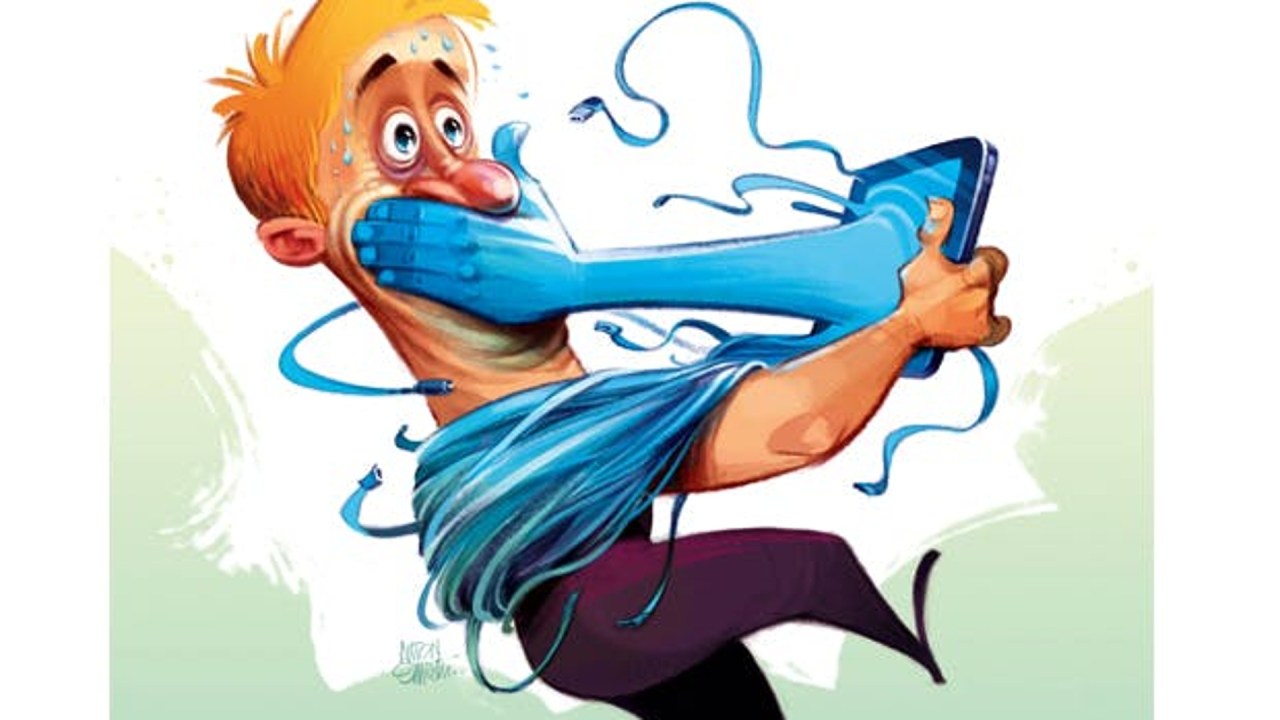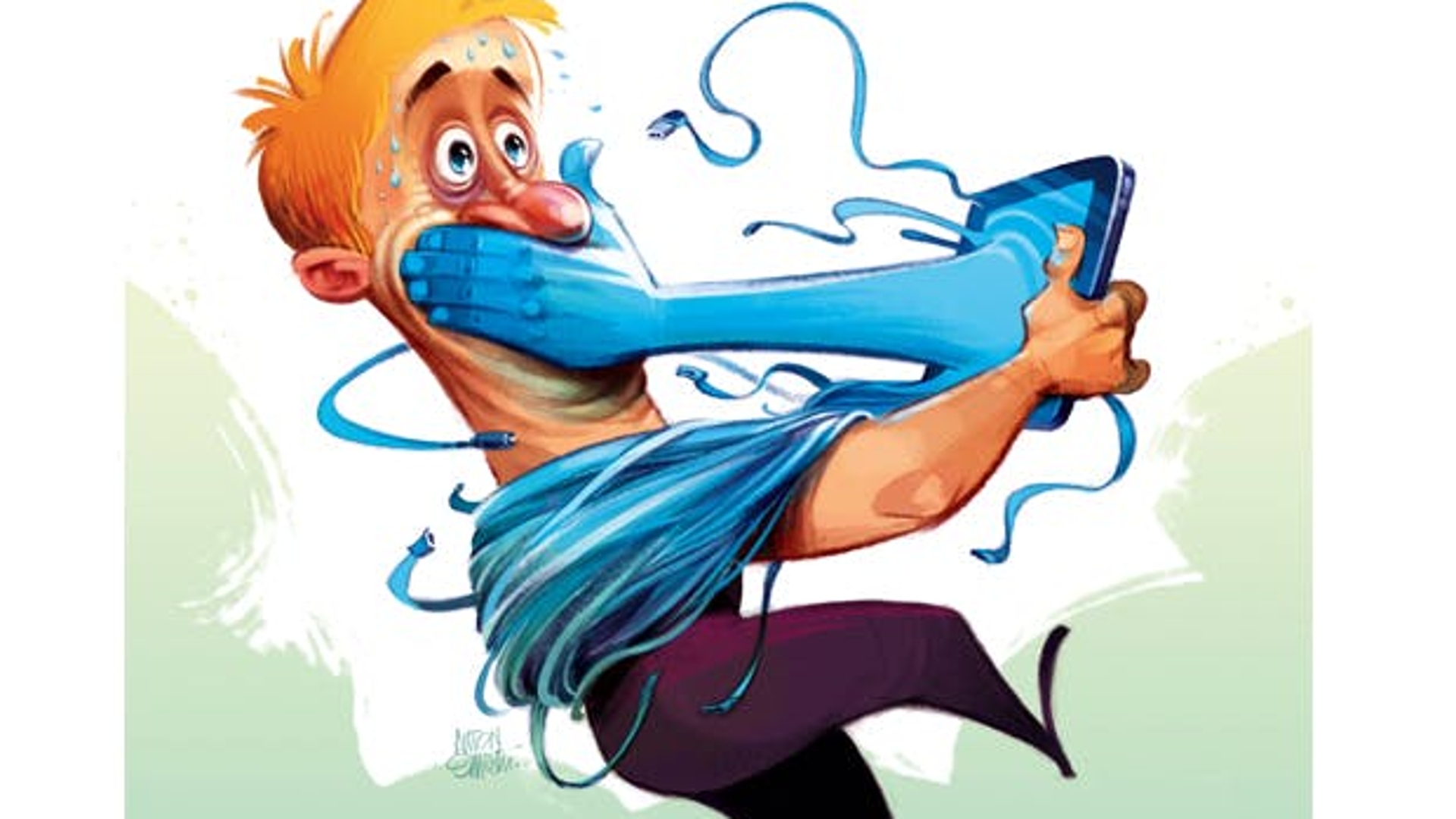A Conservative government that boasts it is a defender of free speech against the attacks of ‘the woke’ is about to impose the severest censorship this country has seen in peacetime since parliament abolished press controls in the 1690s.
In an extraordinary power grab – which is all the more extraordinary for the absence of opposition – ministers want to silence views that carry no criminal penalty. This is more than a much-needed crackdown on racial attacks on black footballers or incitements to violent crime or any other crime; it is an unmerited attack on free speech.
The government’s draft Online Safety bill imposes a ‘duty of care’ on internet companies to remove content that may cause ‘psychological harm’. If they fail to do so, they face crippling fines from the media regulator Ofcom.
Harm is not properly defined in the bill. Instead it is left hanging as a dangerously fuzzy concept that can be picked by any interest group or pack of heresy hunters that wishes to exploit it.
As Index on Censorship said yesterday in an intervention to alert the public and politicians to the danger, the duty of care model comes from health and safety legislation. It has no place in human rights or the traditional freedoms of this country.
At first instance, the bill would outsource internet policing from the actual police operating under the supervision of the courts and Parliament, to Silicon Valley. These tech firms would have every interest in pre-emptively censoring content as social media companies could face fines of ten per cent of their turnover if they break the regulations.
But the ultimate power will rest with the Ofcom quango, which, as the government’s attempts to impose Paul Dacre as its chair show, is now a highly politicised organisation. (And don’t think it would be any less politicised if my lot were in power.)
Can you imagine how lobbyists in the trans debate or any other controversy will use it?
The potential exists for the government and Ofcom to decide that ‘harmful’ is whatever harms their political interests and use the law to silence free debate.
It’s not as if there isn’t enough illegal content online, from child pornography to incitements to racial hatred, to attempts to subvert criminal trials to keep the authorities busy. Tackling it is a hard and urgent task. If there are gaps in the law – and David Davis suggested that we need to legislate against incitements to self-harm – by all means fill them. But instead of putting in the hard work, the government wants sweeping powers to censor legal speech.
Can you imagine how lobbyists in the trans debate or any other controversy will use it? Partisans of every cause will be able to say that they suffer psychological ‘harm’ when they hear arguments they oppose. And no one will be able to prove otherwise, because an outsider can never quantify psychological damage.
For this reason, the law has shied away from treating mental wounds as the equivalent of physical injuries. A broken leg is tangible. The hurt caused by an argument is subjective. How can you judge it?
The list of principles that the Online Safety bill breaks is long and alarming. The rule of law, most obviously, because the government wants the power to ban and silence people who have committed no offence.
‘Publish and be damned’ is going, because the concept of duty of care holds that speech and content that could cause harm should be proactively taken down by internet companies rather than be judged when it has appeared.
Anti-racism is threatened, as Index on Censorship warned when it said that a disproportionate number of the innocuous posts already taken down on social media are in Urdu and Arabic.
Equality before the law? That’s old hat, too, because politicians and newspaper journalists will have greater rights to say what they wish. However if we say the same thing online, or a member of the public repeats the same argument online, the censor’s algorithm could take it down.
Why should I as a journalist have more rights than you? Why should I be protected when I write in The Spectator or Observer, and you be subject to pre-emptive censorship when you agree or disagree with me on Facebook or Twitter?
I could go on but I hope anyone with a smidgeon of regard for keeping our open society open has got the point.
This is a wretched and dangerous bill that needs to be put up against a wall and shot (and as I may soon have to apologise for ‘psychological harm’ caused to civil servants and ministers for using such imagery, I will get it out while I can.)
Few people have reservations about Facebook and others being held to account for publishing illegal content. But as Gavin Millar QC told the Index press conference, the social media monopolists will have more power not less:
‘Judgments that should be reserved for UK prosecutors and the courts will be outsourced to global tech companies. As someone who has undertaken many free speech missions for international organisations to countries with repressive free speech regimes such as China, Turkey, Azerbaijan there is a real risk that this legislation, if passed, will be used to justify repressive measures aimed at closing down free speech on the internet in these countries.’
My guess is tyrannies will seize on the government’s justification for this law because it is a sinister shambles.
The government has followed the arguments of professor Lorna Woods and Will Perrin for the Carnegie Trust that speech should be treated as a health and safety issue, as if it were a potentially dangerous machine tool in a factory or unhygienic kitchen in a restaurant. The duty of care they argue for is based on the precautionary principle that a regulator should act on emerging evidence rather than with full scientific certainty.
The censored would be denied the chance to appeal. ‘Individuals would not have a right of action to the regulator or the courts under the statutory duty of care,’ they said in their original paper ‘Internet harm reduction: a proposal’.
They told the Lords that social media companies should not be thought of as publishers but ‘like an office, bar, or theme park. Hundreds of millions of people go to social networks owned by companies to do a vast range of different things. In our view, they should be protected from harm when they do so.’
Where to start with this mess? Your human rights are not the equivalent of an unprotected machine tool. No one should deny you a right of appeal when they are taken away.
To the best of my knowledge, bar managers and theme park owners do not dictate what political opinions customers may express as long as they behave within the law. Meanwhile, no state other than a dictatorship would suggest that a pub should have a duty of care to prevent offensive speech happening, and that it should be fined if it failed to do so.
Yet Woods and Perrin appear to think that freedom of speech and publication aren’t rights at all but services like the hygiene standards of the restaurant trade that can be proactively regulated so that undefined ‘harm’ can be prevented before it occurs.
Worse, our grasping and authoritarian government agrees with them.








Comments